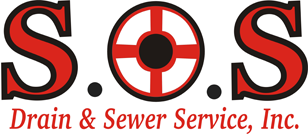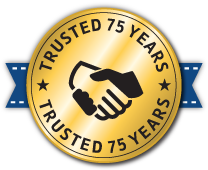A functioning sewer system is essential for a healthy and safe living environment. However, sewer lines can become clogged or damaged, leading to costly repairs and potential health hazards.
But how do you know if your sewer lines need cleaning? Slow draining sinks, backed-up toilets, and unpleasant odors are just a few warning signs that your sewer lines may be in need of attention.
By recognizing the signs and symptoms of sewer line issues, you can take proactive steps to prevent further damage and ensure your home’s plumbing system runs smoothly. Let’s explore the indicators that signal the need for sewer line cleaning.
What is a Sewer Line
Before we dive into the signs of sewer line issues, it’s important to understand what a sewer line is. A sewer line is an underground pipe that carries wastewater from your home or business to the main sewage system. This includes water from toilets, sinks, showers, and other plumbing fixtures.
The main sewer line is typically located outside your property and connects to a larger municipal sewage system or septic tank. It plays a crucial role in removing waste and maintaining the overall health and hygiene of your home or building.
Additionally, sewer lines are made of various materials such as clay, cast iron, or PVC pipes. Over time, these materials can deteriorate and become susceptible to clogs and damage.
Types of Sewer Lines
There are two main types of sewer lines: residential and commercial. Residential sewer lines connect individual homes to the main sewage system, while commercial sewer lines service larger buildings such as businesses, apartment complexes, or industrial facilities.
Residential sewer lines are usually smaller in size compared to commercial ones and may be more susceptible to clogs due to households commonly disposing of items down the drain that should not be flushed or washed away. Commercial sewer lines must also handle a larger volume of waste from multiple sources, making them prone to clogging or damage if not properly maintained.
Additionally, there are also different types of sewer line systems, such as gravity-fed systems and pressure systems. Gravity-fed systems rely on the natural downward flow of wastewater, while pressure systems use pumps to move waste through the pipes. Each type has its own set of potential issues and warning signs, which we will discuss further.
How Can You Tell If You Need Sewer Line Cleaning
Now we tell signs that indicate you may need sewer line cleaning.
Slow Draining Sinks and Bathtubs
One of the first warning signs of a potential clog in your sewer line is slow draining sinks and bathtubs. If water takes longer than usual to drain from these fixtures, it could be a sign that something is blocking the flow of wastewater. This could be due to buildup of debris, grease, or other materials in the pipes.
If multiple drains in your home are experiencing this issue simultaneously, it’s likely that the clog is located in your main sewer line rather than individual pipes. In some cases, you may also hear gurgling noises coming from drains when water is running, indicating air pockets and potential blockages.
Backed-Up Toilets
A backed-up toilet is a clear indication that your sewer line needs attention. If flushing causes water to rise rather than drain, it’s likely that there is a clog preventing waste from leaving the system. This could be due to items such as paper products, wipes, or other non-flushable materials being flushed down the toilet.
In more severe cases, sewage may even start to back up into your home through drains or toilets. Not only is this unpleasant, but it also poses health risks for you and your family. It’s important to address these issues promptly to prevent further damage and contamination. Also, make sure to avoid using chemical drain cleaners as they can cause more harm than good and may not effectively remove the clog.
Unpleasant Odors
Unpleasant odors coming from drains or outside near your sewer line can be a sign of clogs, leaks, or cracks in the pipes. As waste accumulates and remains stagnant due to blockages, foul smells may start to permeate through your plumbing system and into your home.
If you notice persistent odors even after cleaning your drains and garbage disposal, it’s best to have a professional inspect your sewer lines for potential issues. Ignoring these warning signs could lead to more significant problems down the line.
Sewage Backup in Basement or Yard
A sewage backup in your basement or yard is a clear indication that there is a problem with your sewer line. This could happen due to clogs, damage to the pipes, or tree roots infiltrating and obstructing the flow of wastewater.
In addition to causing unpleasant odors and potential health hazards, sewage backups can also cause property damage and be expensive to repair. It’s important to address these issues as soon as possible with the help of a professional drain cleaner.
These are just a few of the signs that may indicate you need sewer line cleaning. Other warning signs include mold growth, unusually lush patches of grass in your yard, fluctuating water levels in the toilet bowl, and recurring clogs or blockages in your plumbing system.
Causes of Sewer Line Issues
There are various reasons why sewer line issues may occur, including age, improper use and maintenance, and external factors. As mentioned earlier, sewer lines can deteriorate over time due to the materials they are made of. This is especially true for older homes with clay or cast iron pipes.
Improper use and maintenance of your plumbing system can also lead to clogs in your sewer lines. Flushing items such as paper products, wipes, feminine hygiene products, or grease down the drain can all contribute to blockages and potential damage to the pipes. It’s important to educate yourself on what should and should not be disposed of through your plumbing systems.
Additionally, external factors such as tree roots can also cause issues with your sewer line. Tree roots are naturally drawn to sources of water, and if there are any cracks or openings in your pipes, they may start to grow towards them and eventually break through or wrap around the pipes, causing blockages. Also, extreme weather conditions such as freezing temperatures or heavy rain can also affect your sewer lines and cause issues.
Indicators of Sewer Line Damage
If left untreated, sewer line issues can escalate and lead to damage to your plumbing system. Some indicators of sewer line damage include sinkholes in your yard, cracks or holes in the pipes, and evidence of sewage backup or leaks.
It’s essential to address these problems promptly with the help of a professional drain cleaner to prevent further damage and costly repairs. Regular maintenance and inspections can also help identify any potential issues early on and prevent major problems from occurring.
Also, keep an eye out for signs of water damage or mold growth in your home, as these may indicate hidden leaks or cracks in your sewer line. If you notice any changes or issues with your plumbing system, don’t hesitate to contact a professional for assistance.
DIY Checks and Tests for Sewer Line Issues
While it’s crucial to seek professional help for sewer line cleaning and repairs, there are some DIY checks and tests you can do to identify potential issues. These include checking for slow or gurgling drains, examining your yard for signs of sewage backups or leaks, and monitoring unusual odors near your plumbing system.
You can also conduct a dye test by flushing food coloring down the toilet and seeing if any unusual colors appear in your yard or basement. This can indicate cracks or damage to your sewer lines that may require attention.
Also, regularly inspecting your plumbing system and being aware of any changes or issues can help catch potential problems early on and prevent them from becoming more severe.
DIY vs. Professional Cleaning
While there are some minor sewer line issues that you may be able to address on your own, it’s always best to seek the help of a professional drain cleaner for more significant problems. DIY cleaning methods such as using drain cleaners or snaking tools can provide temporary relief, but they do not address the root cause of the issue.
In fact, these DIY methods can sometimes do more harm than good by causing further damage to your pipes or exacerbating existing issues. Professional plumbing services have specialized equipment and techniques that allow them to properly diagnose and treat sewer line issues effectively.
Additionally, professional drain cleaners have the expertise and training to handle potentially hazardous situations such as sewage backups and leaks safely. They also have access to high-pressure water jetting and other advanced techniques that can effectively clean out your sewer lines without causing damage.
Furthermore, DIY cleaning methods only provide a temporary solution and may not prevent future issues from occurring. Professional cleaning services, on the other hand, can help identify underlying problems and address them before they become more severe and costly to repair.
What Should You Do if a Floor Drain Backs Up in your Home?
If a floor drain backs up in your home, it’s important to address the issue as soon as possible. Ignoring it can lead to further damage and potential health hazards for you and your family.
The first step is to stop using any plumbing fixtures connected to the same sewer line. This includes sinks, toilets, and showers. This will prevent further wastewater from backing up into your home.
Next, try using a plunger to see if you can dislodge the blockage in your floor drain. If this doesn’t work, it’s best to call a professional drain cleaner for help. They have specialized tools such as augers or hydro jetting equipment that can effectively clear out clogs without causing damage to your pipes.
It’s also essential to avoid using any chemical drain cleaners as they can be harmful to both you and your plumbing system. These harsh chemicals can erode your pipes, potentially causing leaks or further blockages. They can also be hazardous to handle and may release toxic fumes.
To prevent future floor drain backups, it’s crucial to address any underlying issues with your sewer lines. Regular maintenance and inspections can help identify potential problems early on and prevent them from becoming more severe.
At-home Remedies to Unclog a Main Sewer Line
While it’s always best to seek professional help for major sewer line issues, there are some at-home remedies you can try before calling a drain cleaner.
One common method is using a mixture of baking soda and vinegar to break down clogs in your main sewer line. First, pour one cup of baking soda down the drain followed by one cup of vinegar. Let it sit for about 30 minutes before flushing with hot water. This combination can help dissolve grease and other buildup in your pipes.
Another DIY option is using a plumbing snake or auger to physically clear out any obstructions in your sewer line. Insert the tool into the cleanout opening, located either inside or outside your home, and twist it to break up and remove any main sewer line clog.
It’s essential to use caution when using these methods, as they can potentially damage your pipes if not used correctly. It’s also important to note that these DIY remedies may only provide temporary relief and may not address the underlying issue causing the clog.
Remember, safety should always be a top priority when dealing with sewer line issues, so don’t hesitate to seek professional help if needed. With proper care and maintenance, you can ensure that your sewer lines remain in good condition and avoid costly repairs.
Choose S.O.S Drain & Sewer Services For Your Sewer Line Cleaning And Drain Cleaning Needs
S.O.S Drain & Sewer Services is the go-to company for all your commercial and residential drain and sewer cleaning needs in Minneapolis and St. Paul.
Our family-owned business has been providing trusted services since 1941, with a focus on customer satisfaction and trust.
We provide Sewer Line Cleaning for a hassle-free experience and offer upfront pricing with no hidden costs. Our team is highly trained in the latest techniques and equipment, ensuring efficient and effective services.
Contact us today for a hassle-free experience with drain and sewer cleaning, toilet clogs, or any other related issue. We are available 24/7 to better serve our customers in the Twin Cities area.
FAQs
How can you tell if your sewer drain needs cleaning?
You can tell if your sewer drain needs cleaning if you notice slow drains, such as a bathtub drain that takes longer than usual to empty. Other signs include gurgling noises in your pipes or frequent backups in multiple drains, which may indicate a clogged main sewer line.
What are the signs of a clogged main sewer line?
Signs of a clogged main sewer line include multiple slow drains throughout your home, water backing up in sinks or bathtubs, and unusual odors coming from your drains. If you experience these issues, it’s important to consider sewer line cleaning to prevent the need for sewer line repair.
When should you consider sewer line repair instead of just cleaning?
You should consider sewer line repair instead of just cleaning if you have a broken sewer pipe or if cleaning doesn’t resolve the issue. Persistent clogs, or damage found during an inspection, may require trenchless sewer line repair or even a full sewer line replacement to fix the problem.
How do slow drains indicate the need for sewer line cleaning?
Slow drains, especially in multiple fixtures like a bathtub drain, can indicate a buildup in your sewer pipes that requires cleaning. If left untreated, this buildup can lead to a clogged main sewer line, which might necessitate more extensive sewer line repair or replacement.








